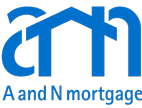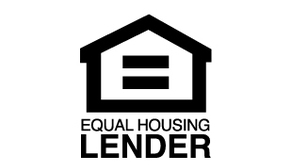Are you interested in increasing your income after you retire? Do you have a home with a fully or mostly paid off mortgage? If so then you might want to consider a reverse mortgage loan. You probably have heard about reverse mortgage loans before but you could be unclear of the details.
Here we’ll provide all the information including reverse mortgage loan requirements and how to make sure you select the reverse mortgage loan services that are right for you.
What Is A Reverse Mortgage Loan?
“A reverse mortgage is a special type of loan that allows older homeowners to withdraw some of the equity in their homes and convert it into cash.”
It’s designed to help retirees meet pressing financial obligations without having to sell their houses or make additional mortgage payments.
With a reverse mortgage, you use a property to guarantee the loan just like with a standard mortgage. Instead of making payments to a lender, a homeowner receives payments from the lender. A reverse mortgage is paid off when you no longer live in the property. The loan will be paid when you die or move into long term care.
Although a homeowner does not have to make monthly payments with a reverse mortgage, you are still financially responsible for the general upkeep of the house. Your property must be kept in good condition and you need to cover everything from insurance to property tax.
You also need to be aware that whereas with a traditional mortgage the amount decreases, a reverse mortgage loan increases due to interest costs and fees. The costs are added each month and the equity in your home will also decrease.
Types of Reverse Mortgage Loans
There are three main types of reverse mortgages available to homeowners:
- Single-purpose Reverse Mortgage
- Home Equity Conversion Mortgage (HECM)
- Proprietary Reverse Mortgage
Home Equity Conversion Mortgage or HECM is the most common type of reverse mortgage loans. The mortgage is backed by the Federal Housing Administration and provides various flexible choices for payments. A borrower’s payment options include:
- A single, lump-sum
- Fixed monthly payments over a specified period of time
- Fixed monthly advances while you reside in your home
- A line of credit
Alternatively, a single-purpose reverse mortgage allows the homeowner to borrow against their home equity for a lender-approved expense. These expenses typically include property taxes or repairs to a home. The loan is usually provided in a lump sum to cover the specific financial requirement you have.
The next option is a proprietary reverse mortgage. This type of loan is more suitable for those who have homes that are of a higher value because they give the homeowner access to larger monthly advances.
Reverse Mortgage Loan Procedure Explained
With one of these reverse mortgages, a certain level of equity in your home is converted into payments for you. Payments can be a lump sum or multiple payments over a set period. The payment schedule can be completely flexible to your needs.
You’ll need to think about how big of a loan you qualify for a reverse mortgage. The amount is determined by your age, the current rate on the mortgage, the value of your home and the age of a partner. Keep in mind that your partner also has to be a certain age to qualify for a reverse mortgage. Typically, the older you are, the more you will be able to borrow.
Using a reverse mortgage calculator, you can get a rough estimate of how much a reverse mortgage could offer. Be aware the amount may differ between providers. You then need to choose whether to opt for the single lump sum or multiple payments. A potential deciding factor here is that the lump sum provides fixed interest whereas with multiple payments the interest is variable.
Reverse Mortgage Requirements
There are several reverse mortgage requirements you should be aware of before you apply for the loan yourself. These include:
- Age
- Use of the home
- Ownership
- Level of debt
- Income
- Understanding
Age is one of the most important factors. You need to be at least 62 years old to qualify for a reverse mortgage loan. The homeowner must also be looking for a loan that will be backed by a primary residence. Vacation homes are not qualified properties for a reverse mortgage loan.
The property should also be one hundred percent owned by you or only have a small mortgage. If you are still paying off your mortgage when you decide to apply for a reverse mortgage loan, then you will need to pay off the existing mortgage first. For this reason, you should have at least 50% equity in your property before you apply for a reverse mortgage loan.
There are also issues with debt to consider. The homeowner cannot have any federal debt delinquencies including tax debts or student loans. Furthermore, your credit score can be a determining factor. There is no set credit standard but you will have a better chance of securing a reverse mortgage loan if your credit score is healthy. You can guarantee a great credit score by keeping debts paid and balances in check.
You do need to provide that you have a suitable level of income. Proof of a good income will show that you are able to pay for everything including insurance and other expenses linked to your home.
Finally, you will need to meet with a HUD-approved reverse mortgage expert. The counselor will provide you with all the information you need before you decide which reverse mortgage loan is right for you.
Pros And Cons Of A Reverse Mortgage
Pros Of A Reverse Mortgage
Big benefits of a reverse mortgage loan include:
- Flexibility
- Tax-free loan
- Freedom to leave money for relatives
One of the biggest advantages of reverse mortgage loans is that you will be able to choose a payment option that suits you best. The money that you get from a reverse mortgage is also not considered income. As such, while you will have to pay insurance, you won’t have to worry about paying taxes on a lump sum reverse mortgage payment. You also don’t have to worry about the loan limiting your medical or social security payments. Furthermore, you can continue living in your home which ensures that you have a place to live and you can eliminate monthly mortgage payments.
You might be worried that you will be leaving nothing for your heirs. However, with a reverse mortgage loan, descendants do gain access to the remaining home equity once the mortgage has been paid off. Descendants are also not responsible if the amount exceeds the home value. With a reverse mortgage loan, descendants will not be required to pay the remainder of the loan once you pass on.
Cons Of A Reverse Mortgage
There are a few issues with reverse mortgage loans to be aware of including:
- Confusion over conditions
- High fees
- Impact on income
One of the issues with reverse mortgages is that many people do find them to be confusing. The confusion can lead to unexpected consequences after taking out the reverse mortgage. Lack of information surrounding the loan is also why you are required to sit down with a qualified counselor.
You should also be prepared for fees that are significantly higher than a traditional mortgage. High fees may take you by surprise and the value that you are leaving people behind may decrease over time. On the other hand, you will never leave descendants with debt to be paid out of their own pocket with a reverse mortgage loan.
While social security benefits will not be affected, government based payments like Medicaid could be adjusted after qualifying for a reverse mortgage. As such, this type of loan could still impact your income, albeit in minor ways.
Changes to regulations have also made borrowing more difficult while increasing the payments that you will be expected to pay upfront. That said, there are still good deals on the market for those interested in reverse mortgage loans.
How Can You Shop For A Reverse Mortgage?
If you are interested in shopping for reverse mortgage loan services, make sure that you consider a wide range of companies. Make sure that you use their calculator or gain a quote from different providers to find out exactly what each company can offer you.
Consider the type of interest rates you will be expected to pay as well as any fees on top of the initial loan.
It’s important to speak to a mortgage advisor who can recommend the best loan option for your individual needs.
Conclusion
Remember you need to consider reverse mortgage loan requirements and check that you are eligible. If you are, we suggest you explore the reverse mortgage services offered at A&N Mortgage.
We offer highly competitive rates on any reverse mortgage loan provided and can be incredibly nimble as a mortgage banker and broker. Do you think a reverse mortgage loan could be the right choice for you?
A and N Mortgage Services Inc, provides you with high-quality home loan programs tailored to fit your unique situation with some of the most competitive rates in the nation. Whether you are a first-time homebuyer, relocating to a new job, or buying an investment property, our expert team will help you use your new mortgage as a smart financial tool.










